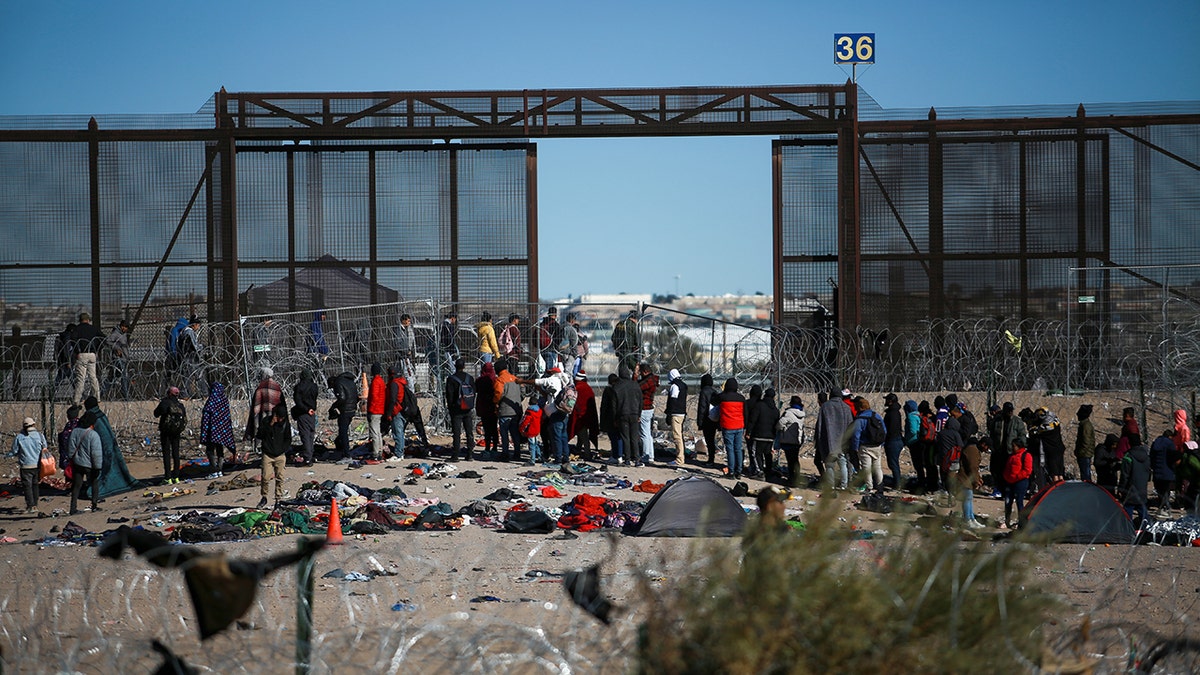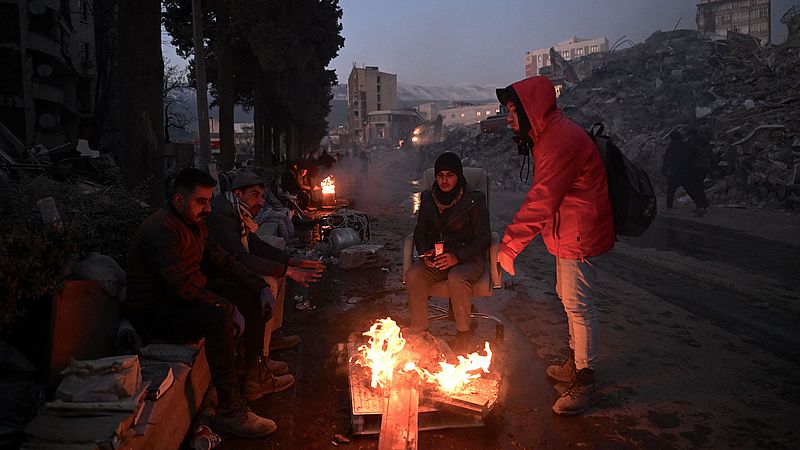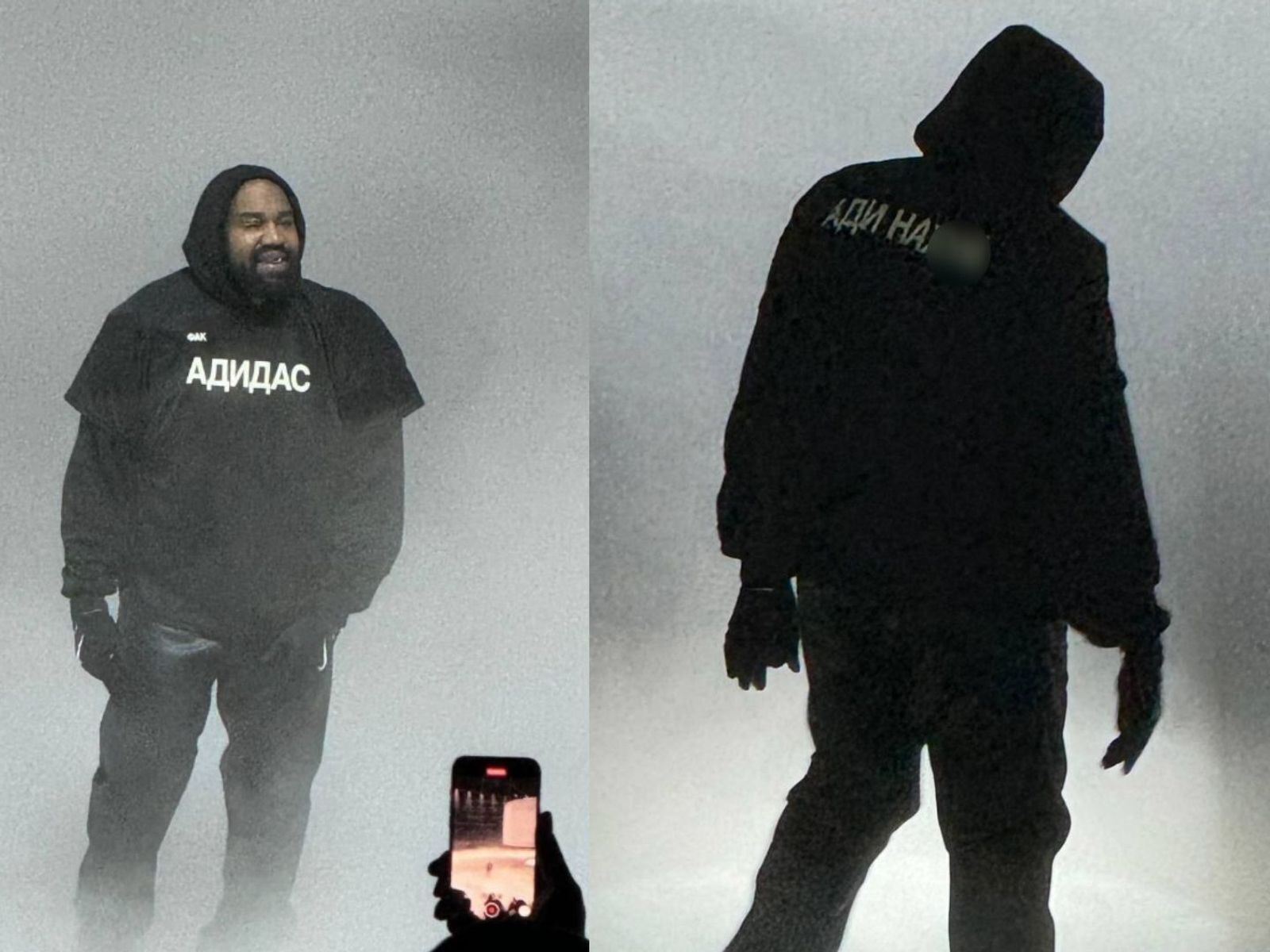Supreme Court's New Stay On Deportations: Impact Of Wartime Law

Table of Contents
The Supreme Court's Decision: A Detailed Overview
The Supreme Court's ruling, stemming from the case of [Insert Case Name Here], halted deportations under the authority of [Insert Specific Wartime Legislation, e.g., the War Powers Act of 1973, with specific section number]. This decision temporarily blocks the deportation of [Specify group affected, e.g., individuals from specific countries, those with specific immigration statuses].
- Summary of the majority opinion: The majority opinion argued that [Summarize the core argument of the majority, focusing on the legal justification for the stay]. They emphasized [Mention key points from the majority opinion, highlighting the legal reasoning].
- Summary of dissenting opinions (if any): [Summarize dissenting arguments, if any, focusing on the legal and constitutional challenges raised]. The dissenters argued that [Highlight the core disagreements with the majority].
- Key legal precedents cited in the decision: The Court's decision referenced [List key precedents cited, linking to relevant legal databases if possible]. These precedents were used to [Explain how the precedents were applied to the current case].
- Specifics of the stay – what it covers and whom it affects: The stay specifically covers [Clearly define the scope of the stay, specifying who is affected and what actions are temporarily halted]. This includes [List specific examples of who benefits from the stay].
Wartime Laws in a Modern Context: Legal Analysis
The invoked wartime law, [Reiterate the name of the legislation], originates from [Provide historical context, explaining the circumstances surrounding its creation]. Its original intent was [Explain the original purpose of the law]. However, its application in this modern, peacetime context is highly contentious.
- Examination of the original intent of the law: The historical record reveals that the law was primarily intended for [Explain original intent in detail]. This raises concerns about [Explain potential issues with applying the law outside its original context].
- Discussion of potential legal challenges to the ruling: The ruling is likely to face legal challenges based on [Mention potential legal grounds for challenges, e.g., violations of due process, equal protection]. These challenges will likely focus on [Elaborate on the specific aspects of the ruling likely to be challenged].
- Analysis of the precedent this sets for future immigration cases: This decision sets a significant precedent for future cases involving [Explain the implications for future immigration cases, particularly those involving national security concerns]. It could potentially lead to [Discuss potential outcomes resulting from this precedent].
- Comparison to past uses of wartime powers in non-wartime situations: This instance is comparable to [Mention historical examples of wartime powers being used in non-wartime situations], in which [Explain how those past cases are relevant to the current situation].
Impact on Deportation Proceedings and Affected Individuals
The immediate impact on those facing deportation is significant. The stay provides a temporary reprieve, but the uncertainty surrounding its duration creates immense stress.
- Number of individuals directly affected by the stay: Estimates suggest that [Provide estimated number, citing sources if possible] individuals are directly affected.
- Types of cases impacted (e.g., asylum seekers, visa overstays): The stay impacts a wide range of cases, including [List specific categories of cases impacted].
- Potential delays and backlogs in deportation proceedings: The stay will inevitably lead to significant delays and backlogs, potentially exacerbating existing problems within the immigration system.
- Psychological and emotional impact on those affected: The uncertainty caused by the stay creates immense psychological stress for those affected, impacting their mental health and overall well-being.
Political and Public Reaction to the Supreme Court Deportation Stay
The Supreme Court Deportation Stay has sparked intense debate across the political spectrum.
- Statements from relevant government officials: [Summarize statements from relevant officials, such as the Attorney General or Homeland Security Secretary].
- Reactions from immigrant rights organizations: Immigrant rights organizations have [Summarize their reactions, noting whether they support or oppose the ruling].
- Public opinion polls and surveys regarding the decision: Public opinion is [Summarize public opinion, citing poll results if available].
- Media portrayals of the ruling and its consequences: Media coverage has been [Describe media coverage, noting any biases or differing perspectives].
Long-Term Implications for Immigration Policy
This decision will likely have far-reaching consequences for immigration policy.
- Potential for legislative reform of the relevant wartime law: Congress may respond by [Discuss potential legislative changes, focusing on how the law might be amended or repealed].
- Implications for future Supreme Court cases involving immigration: This ruling will shape future legal arguments and decisions concerning immigration matters, particularly those involving national security concerns.
- Possible changes to deportation procedures in light of the ruling: The ruling may lead to [Discuss possible procedural changes in deportation processes].
Conclusion
The Supreme Court's stay on deportations, based on wartime legislation, presents a complex legal and political challenge. The decision raises significant questions about the use of wartime powers in peacetime, impacting countless individuals facing deportation and potentially reshaping immigration policy for years to come. The legal analysis, political reaction, and future implications discussed highlight the profound consequences of this ruling on the Supreme Court Deportation Stay.
Call to Action: Stay informed on the ongoing developments concerning this crucial Supreme Court ruling on deportation stays and its impact on immigration law. Continue to follow updates on the Supreme Court Deportation Stay to understand its long-term consequences.

Featured Posts
-
 Defensie Industrie Nederland Expansie Krijgt Meer Politieke En Publieke Steun
May 18, 2025
Defensie Industrie Nederland Expansie Krijgt Meer Politieke En Publieke Steun
May 18, 2025 -
 Red Carpet Rule Breakers Understanding The Misbehavior
May 18, 2025
Red Carpet Rule Breakers Understanding The Misbehavior
May 18, 2025 -
 Amsterdam Hotel Attack Police Investigation Following Knife Injuries
May 18, 2025
Amsterdam Hotel Attack Police Investigation Following Knife Injuries
May 18, 2025 -
 Retirement Planning A Cautious Look At A Recent Investment Trend
May 18, 2025
Retirement Planning A Cautious Look At A Recent Investment Trend
May 18, 2025 -
 Hollywood At A Standstill The Combined Writers And Actors Strike
May 18, 2025
Hollywood At A Standstill The Combined Writers And Actors Strike
May 18, 2025
Latest Posts
-
 Angels Defeat White Sox 1 0 Moncada And Soriano Shine
May 18, 2025
Angels Defeat White Sox 1 0 Moncada And Soriano Shine
May 18, 2025 -
 Kanye Vest I Byanka Tsenzori Podrobnosti O Rasstavanii
May 18, 2025
Kanye Vest I Byanka Tsenzori Podrobnosti O Rasstavanii
May 18, 2025 -
 Angels Late Game Meltdown Tatis Jr Delivers Walk Off Win For Padres
May 18, 2025
Angels Late Game Meltdown Tatis Jr Delivers Walk Off Win For Padres
May 18, 2025 -
 Cardinals Vs Jansen A Pitchers Duel For The Opener
May 18, 2025
Cardinals Vs Jansen A Pitchers Duel For The Opener
May 18, 2025 -
 Moncada And Sorianos Strong Performances Lead Angels To 1 0 Victory Over White Sox
May 18, 2025
Moncada And Sorianos Strong Performances Lead Angels To 1 0 Victory Over White Sox
May 18, 2025
